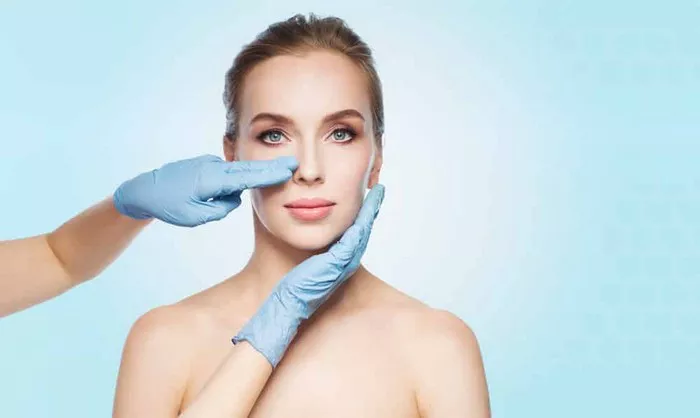Rhinoplasty, also known as nose reshaping surgery, is a popular cosmetic procedure that can improve the appearance and function of the nose. It is a surgical procedure that involves reshaping the nose to create a more aesthetically pleasing appearance or to correct breathing problems. After rhinoplasty, it is important to follow the post-operative care instructions provided by your surgeon to ensure a successful recovery. One common question that patients have is whether it is safe to blow their nose after rhinoplasty. In this article, we will explore the answer to this question and provide tips for a safe and successful recovery after rhinoplasty.
Blowing Your Nose After Rhinoplasty
After rhinoplasty, it is important to avoid blowing your nose for at least two weeks. Blowing your nose too soon after surgery can cause several complications, including:
Bleeding: Blowing your nose can cause bleeding around the surgical site. This can delay healing and increase the risk of infection.
Swelling: Blowing your nose can also cause swelling around the surgical site. This can delay healing and make it more difficult to achieve the desired results.
Dislodging the Nasal Packing: In some cases, your surgeon may place nasal packing in your nose after rhinoplasty to help control bleeding and support the new nasal structure. Blowing your nose too soon after surgery can dislodge the packing, which can cause discomfort and delay healing.
Shifting the Nasal Bones: Blowing your nose too soon after rhinoplasty can also cause the nasal bones to shift, which can affect the final results of the surgery.
Damaging the Incision Site: Blowing your nose too soon after rhinoplasty can also damage the incision site, which can delay healing and increase the risk of infection.
It is important to note that the risks associated with blowing your nose after rhinoplasty can vary depending on the specific details of your surgery. It is important to discuss any concerns you have with your surgeon and follow their specific post-operative care instructions.
Tips for a Safe and Successful Recovery After Rhinoplasty
To ensure a safe and successful recovery after rhinoplasty, it is important to follow the post-operative care instructions provided by your surgeon. Here are some tips to help you recover after rhinoplasty:
Rest and Relaxation: Rest and relaxation are important for a successful recovery after rhinoplasty. It is important to avoid strenuous activities, such as exercise, for at least two weeks after surgery.
Keep Your Head Elevated: Keeping your head elevated can help reduce swelling and promote healing. It is important to sleep with your head elevated for at least the first week after surgery.
Avoid Touching Your Nose: It is important to avoid touching your nose after rhinoplasty. This can cause discomfort and delay healing.
Follow Post-Operative Care Instructions: It is important to follow the post-operative care instructions provided by your surgeon. This includes avoiding blowing your nose, keeping the surgical site clean and dry, taking any prescribed medications as directed, and attending all follow-up appointments.
Avoid Smoking: If you smoke, it is important to quit before and after rhinoplasty. Smoking can impair the body’s immune system, delay healing, and increase the risk of complications.
Stay Hydrated: Staying hydrated is important for a successful recovery after rhinoplasty. It can help reduce swelling and promote healing.
Be Patient: It is important to be patient during the recovery process. It can take several weeks or even months for the swelling to subside and for the final results to become visible.
Use Saline Nasal Spray: Your surgeon may recommend using saline nasal spray after rhinoplasty to help keep the nasal passages moist and reduce the risk of infection.
Avoid Allergens: It is important to avoid allergens, such as pollen and dust, after rhinoplasty. Allergens can irritate the nasal passages and increase the risk of infection.
Wear Sunscreen: It is important to wear sunscreen after rhinoplasty, especially if you will be spending time outdoors. Sun exposure can cause the skin around the surgical site to become discolored and delay healing.
Take Care of Your Mental Health: Recovery after rhinoplasty can be a challenging time, both physically and mentally. It is important to take care of your mental health by practicing self-care, seeking support from loved ones, and addressing any concerns or anxieties with your surgeon.
Conclusion
Blowing your nose too soon after rhinoplasty can cause several complications, including bleeding, swelling, dislodging the nasal packing, shifting the nasal bones, and damaging the incision site. To ensure a safe and successful recovery after rhinoplasty, it is important to follow the post-operative care instructions provided by your surgeon. This includes avoiding blowing your nose, keeping the surgical site clean and dry, taking any prescribed medications as directed, and attending all follow-up appointments. By following these tips, you can help ensure a safe and successful recovery after rhinoplasty and achieve the desired results. Remember to discuss any concerns you have with your surgeon and take care of your mental health during the recovery process.

